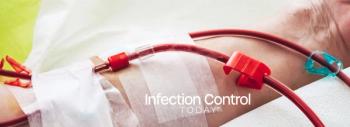
Hospitals Slammed for Not Doing Enough to Protect Nurses from COVID-19
National Nurses United wants hospitals to establish protocols in which nurses are immediately notified when a patient who might have COVID-19 is admitted.
A high percentage of hospitals have kept nurses in the dark about how to recognize and treat COVID-19, and don’t have enough personal protective equipment (
· Has provided information about COVID-19 and how to recognize and respond to possible cases (44%).
· Has instituted travel/exposure history screening for all patients with fever and/or respiratory symptoms (58%).
· Has provided access to N95 respirators on their units (63%).
· Has provided access to powered air purifying respirators (27%).
· Has a plan in place to isolate a patient with a possible novel coronavirus infection (29%-23% don’t know if a plan is in place).
· Has an overflow plan to provide care to patients in isolation for COVID-19 (14%-43%don’t know if a plan is in place).
· Has a policy to address employees with suspected or known exposure to novel coronavirus (19%-43%don’t know if there’s a policy).
“Nurses are confident we can care for COVID-19 patients, and even help stopthe spread of this virus, IF we are given the protections and resources we need to do our jobs,” Bonnie Castillo, RN, and NNU executive director, said in a
Cathy Kennedy, is a neonatal intensive care unit RN and NNU vice president. She works at Kaiser Permanente in Roseville, Calif., where the first California COVID-19 patient recently died. “The lines of communication between our employers and frontline staff on protocols for coronavirus and suspected coronavirus patients are not open for all shifts and all units,” Kennedy said at a press conference last Thursday. “What happens when there is a lack of clear communication both ways between staff and management? Rumor and falsehoods fill the void, stoking unnecessary fear and anxiety. And the information nurses do get is contradictory.”
NNU wants hospitals to establish protocols in which nurses are immediately notified when a patient who might have COVID-19 is admitted. In addition, nurses should be trained on how to care for such patients including donning and doffing techniques.
“Employers must ensure negative pressure rooms remain functional at all times during use,” NNU argues. “Highest level of PPE must include PAPR (powered air-purifying respirator), coveralls meeting ASTM (American Standard for Testing and Materials) standard, gloves, temporary scrubs, and other protections.”
NNU’s warnings come at the same time that there’s growing concern about the number of healthcare workers who self-quarantine. The first documented instance of community transmission of a patient in Vacaville, California, led to more than 200 hospital workers being quarantined, according to tells
Jennifer Nuzzo, DrPH, a senior scholar at the Johns Hopkins Center for Health Security, tells KHN: “It’s just not sustainable to think that every time a health care worker is exposed they have to be quarantined for 14 days. We’d run out of health care workers.” Nuzzo argues that hospitals need to find the proper balance that hinges on the continuing flow of evolving medical information about COVID-19 and maintaining enough staff to keep hospitals and other healthcare institutions in operation. That may not be possible, especially in light of the fact that from 2003 to 2019, government funding was
Newsletter
Stay prepared and protected with Infection Control Today's newsletter, delivering essential updates, best practices, and expert insights for infection preventionists.




